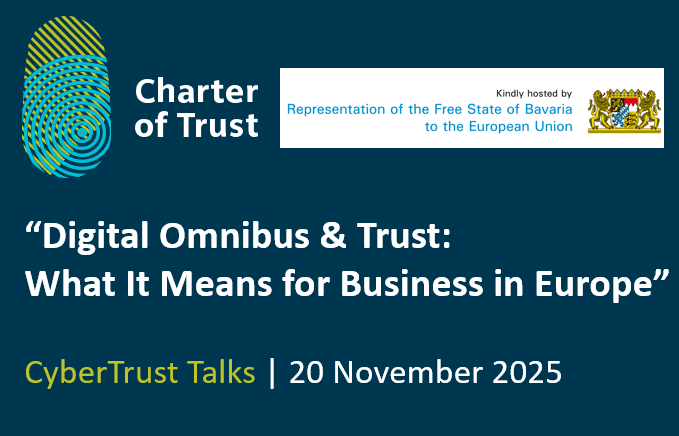


The Charter of Trust is a non-profit alliance of global companies that are thought leaders and pioneer practitioners in cybersecurity and digital trust.
Activities
Strengthening cyber resilience
Key Initiatives in Security by Default, Supply Chain Security, Emerging Technologies, Education, and External Engagement

News and publications
Latest updates
Important milestones towards more cybersecurity

Webinar: Cybersecurity Regulations in North America
On Tuesday, the Charter of Trust convened a timely virtual panel discussion on 'Security by Default in View of Major Cybersecurity Regulations in North America'. With more than 100 participants joining from around the world, the discussion underscored just how urgent, and global, the cybersecurity challenge has become.
A huge thank you to our outstanding panellists for their invaluable insights and for sharing their experiences with us: Linda Strick (Cloud Security Alliance), Kyle McMillan (Siemens), Lauren Zabierek (CAS Strategies), Rob Spiger (Microsoft), Sam Curry (Zscaler), and great moderation from Sudhir Ethiraj (TÜV SÜD).
The CoT expert panel:
- discussed fragmented cybersecurity regulations in North America and the need for more resilient infrastructure and security-by-default practices
- emphasized the need to embed security early in product architecture rather than addressing it post-incident
- highlighted the importance of structured collection of security signals and incident reporting to improve software safety
- discussed about software as critical infrastructure affecting national security, economy, and public health, requiring robust safety measures
Thank you to everyone who participated! A recording of the webinar can be found at the bottom of this page.
A huge thank you to our outstanding panellists for their invaluable insights and for sharing their experiences with us: Linda Strick (Cloud Security Alliance), Kyle McMillan (Siemens), Lauren Zabierek (CAS Strategies), Rob Spiger (Microsoft), Sam Curry (Zscaler), and great moderation from Sudhir Ethiraj (TÜV SÜD).
The CoT expert panel:
- discussed fragmented cybersecurity regulations in North America and the need for more resilient infrastructure and security-by-default practices
- emphasized the need to embed security early in product architecture rather than addressing it post-incident
- highlighted the importance of structured collection of security signals and incident reporting to improve software safety
- discussed about software as critical infrastructure affecting national security, economy, and public health, requiring robust safety measures
Thank you to everyone who participated! A recording of the webinar can be found at the bottom of this page.
Read more
January 28, 2026

A Quantum Leap for Cybersecurity: The Charter of Trust’s PQC Ambition
The Charter of Trust is taking decisive steps to secure our digital future in the quantum era. As quantum computing advances, the risks to today’s cryptographic systems grow ever more urgent. Our dedicated working group is leading the way in raising awareness, promoting standards-based migration, and fostering collaboration across industries, governments, and academia. Together, we are committed to a proactive, well-coordinated, and risk-driven transition to post-quantum cryptography—ensuring digital trust and resilience for generations to come. Discover our vision and join us as we shape a secure digital world for the quantum age.
Read more
November 6, 2025

3rd CyberTrust Talk - Digital Omnibus & Trust - What it Means for Business in Europe?
Join us for a timely and dynamic edition focused on “Digital Omnibus & Trust: What It Means for Business in Europe” kindly hosted by the Representation of the Free State of Bavaria to the EU on November 20, 2025 at 11:00 AM (Central European Time) for a lunch event filled with insightful discussions on cybersecurity and trust in the digital age.
With the European Commission unveiling its landmark Digital Omnibus Package just one day before, this event is your exclusive opportunity to be among the first to explore its real-world impact on business and the digital economy across Europe.
What to Expect:
Opening remarks by:
Dr. Armin Hartmuth, Director, Representation of the Free State of Bavaria to the European Union
Dr. Sumit Chanda, COO, Atos Group Security & Business Lines CISO, and Co-Chair of the Charter of Trust.
Keynote Address:
Despina Spanou, Deputy Director General for Cybersecurity and Trust, European Commission (DG CNECT), will share first-hand insights into the objectives and expected impact of the Digital Omnibus Package.
Expert Panel Discussion featuring:Moderated by Sudhir Ethiraj, Global Head of Cybersecurity Office, CEO Business Unit Cybersecurity Services, TÜV SÜD.
Despina Spanou, Deputy Director General for Cybersecurity and Trust, European Commission (DG CNECT)
Kia Slæbæk Jensen, Cyber Advisor, Permanent Representation of Denmark to the EU
Suzanne Button, Field CTO EMEA, Elastic
Tomas Jakimavicius, Director European Government Affairs, Microsoft
Yana Humen, AI and Cybersecurity Policy Manager, Government and Regulatory Affairs, IBM
Interactive Q&A: Bring your questions and join the conversation on regulatory coherence, innovation, and the future of digital governance in Europe.
Closing remarks by Maria del Pino Gonzalez-Junco, Director of the Charter of Trust
Networking Lunch: Connect with peers, policymakers, and industry leaders in an informal setting.
Why attend?
Gain first-hand insights into the EU’s Digital Omnibus Package—straight from the policymakers and experts shaping it.
Understand the immediate implications for your business and how to navigate upcoming changes.
Be part of a strategic dialogue that could influence the future of digital regulation in Europe.
With the European Commission unveiling its landmark Digital Omnibus Package just one day before, this event is your exclusive opportunity to be among the first to explore its real-world impact on business and the digital economy across Europe.
What to Expect:
Opening remarks by:
Dr. Armin Hartmuth, Director, Representation of the Free State of Bavaria to the European Union
Dr. Sumit Chanda, COO, Atos Group Security & Business Lines CISO, and Co-Chair of the Charter of Trust.
Keynote Address:
Despina Spanou, Deputy Director General for Cybersecurity and Trust, European Commission (DG CNECT), will share first-hand insights into the objectives and expected impact of the Digital Omnibus Package.
Expert Panel Discussion featuring:Moderated by Sudhir Ethiraj, Global Head of Cybersecurity Office, CEO Business Unit Cybersecurity Services, TÜV SÜD.
Despina Spanou, Deputy Director General for Cybersecurity and Trust, European Commission (DG CNECT)
Kia Slæbæk Jensen, Cyber Advisor, Permanent Representation of Denmark to the EU
Suzanne Button, Field CTO EMEA, Elastic
Tomas Jakimavicius, Director European Government Affairs, Microsoft
Yana Humen, AI and Cybersecurity Policy Manager, Government and Regulatory Affairs, IBM
Interactive Q&A: Bring your questions and join the conversation on regulatory coherence, innovation, and the future of digital governance in Europe.
Closing remarks by Maria del Pino Gonzalez-Junco, Director of the Charter of Trust
Networking Lunch: Connect with peers, policymakers, and industry leaders in an informal setting.
Why attend?
Gain first-hand insights into the EU’s Digital Omnibus Package—straight from the policymakers and experts shaping it.
Understand the immediate implications for your business and how to navigate upcoming changes.
Be part of a strategic dialogue that could influence the future of digital regulation in Europe.
Read more
November 5, 2025
-->-->






















